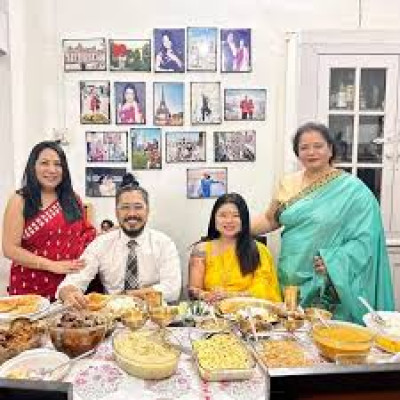What Is The Athmangala Ceremony, The Final Post-wedding Ritual In Assamese Marriage Traditions?



During Athmangala, the bride visits her parental home for the first time after marriage, accompanied by her husband, relatives, and close well-wishers. The ceremony includes rituals of traditional feasting, blessings from elders, exchange of gifts, and prayers for a prosperous married life. It is considered a deeply emotional and symbolic moment, as it strengthens the bond between both families.
The Athmangala ceremony not only reflects Assamese cultural values of family and community bonding but also preserves the essence of love, respect, and auspicious beginnings in marriage.
Timing of the Ritual
The Athmangala ceremony is held on the eighth day after the wedding.
The word Ath means “eight,” symbolizing the timing and auspiciousness of the day.
Bride’s First Visit Home
On this day, the bride returns to her parental home for the first time after marriage.
She is accompanied by her husband and sometimes close relatives from the groom’s side.
Traditional Welcome
The bride’s family warmly welcomes the newly married couple.
Aarti, tilak, and offerings of betel nut and betel leaves are common rituals.
Blessings from Elders
Elders from both families bless the couple for a long, happy, and prosperous married life.
Special prayers may be offered for good health, fertility, and harmony.
Exchange of Gifts
The bride’s family often presents clothes, ornaments, or household items to the couple.
In return, the groom’s family may also bring symbolic gifts for the bride’s parents.
Traditional Feast
A grand Assamese meal is prepared, including rice, fish, meat, and traditional sweets.
Eating together strengthens family bonding and marks the auspicious completion of the wedding rituals.
Emotional Bonding Moment
The Athmangala is not just a ritual, but an emotional reunion between the bride and her family.
It signifies that even after marriage, the connection with her parental home remains strong.
Completion of Wedding Festivities
Athmangala marks the formal conclusion of Assamese wedding ceremonies.
From this day forward, the couple begins their new life fully as husband and wife.